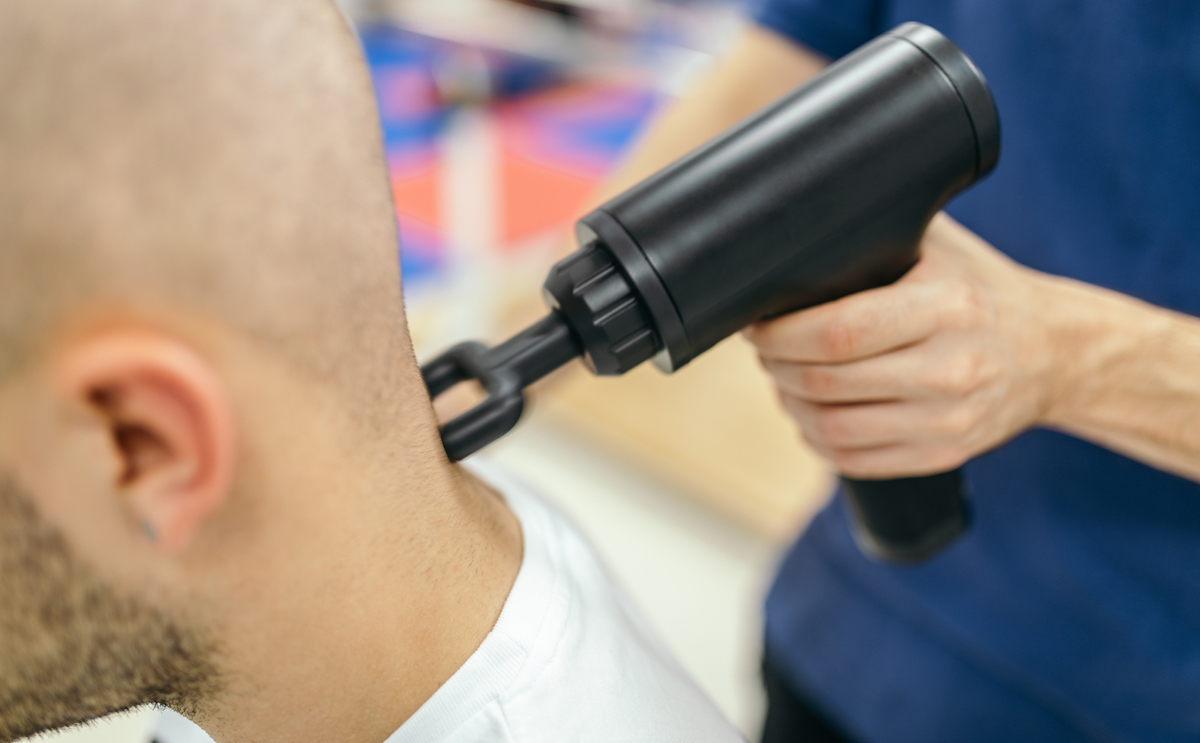Massage guns, also known as percussive massagers, have gained popularity the past few years for their short bursts of pressure into muscle tissue that can help reduce soreness temporarily or improve the ability to stretch tight muscle tissue.
But how do you know if a massage gun is right for you?
John Galer, a physical therapist at Hartford HealthCare’s Bone & Joint Institute, has some tips and the pros and cons.
Pros
- Can help improve muscle length or tight muscles by moving the tissues prior to stretching.
- Can help release trigger points, also known as knots, in a muscle.
- May reduce exercise-induced muscle soreness.
Cons
- Will not improve muscle length or tight muscles.
- Will not give long-lasting relief if used by itself to treat pain.
- Increases pain if using incorrect settings or adapters.
- Bruising can occur if you use too high of a setting or increase duration of time.
- Expensive.
How Should You Properly Use the Massage Gun and How Often?
“One to two minutes per area with tolerable intensity over large muscle groups prior to specific stretch and exercise to improve upon deficits leading to dysfunction. Depending on dysfunction different frequency of use may be recommended,” says Galer.
Areas to Avoid?
“You should avoid bony areas like the ankles and collarbone, bruises, open wounds, blister, infection and sunburn,” he says.
Galer also warns of risks if a massage gun is used incorrectly, including bruising and discomfort. There is misunderstanding that the temporary relief will last and that the cause of pain is being treated.


